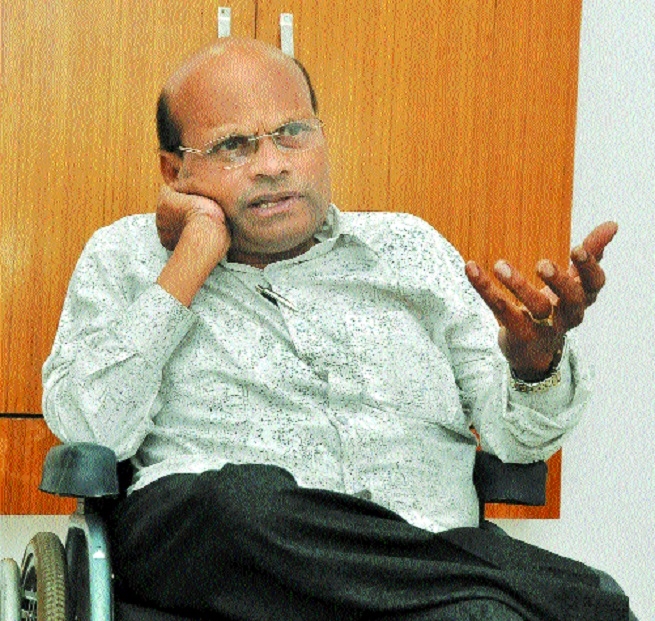‘Specialisation at early stage of edn narrows students’ thought process’
| Date :16-Feb-2020 |

Prof M K Sridhar
By Vikas Vaidya :
OPTING for a stream either from Science, Commerce, Arts etc at early stage of pursuing education as per the education system for specialisation is resulting in narrowing of students’ vision, felt Prof M K Sridhar, esteemed educationist, prominent member of the committee that has drafted new National Education Policy, Prof M K Sridhar. Elaborating the point while talking to ‘The Hitavada’, Prof Sridhar said, “For instance, if a student opts for Science stream after Class X, he/she gets engrossed in science and never gets to know more about other streams which may be of his/her interest.
This system of making mandatory for students to go for specialisation too early narrows the thought process of the students.” Prof Sridhar was in the city to attend a programme organised by Kavikulguru Kalidas Sanskrit University (KKSU) at Nag Bhavan, on Saturday. Prof Sridhar, Executive Director of the Karnataka Knowledge Commission (KKC), is known for formulating policies aimed at transforming Karnataka into a knowledge society. Born to M R Krishnamurthy, a cloth merchant, and M K Sumithramma, in Hindupur, Andhra Pradesh, Sridhar suffered from polio when he was four. Disability did not deter him from pursuing education though he had to stay away from parents when he was just 10. He did not look back and kept on acquiring degrees.
He is a post-graduate in Commerce and has obtained Doctor of Philosophy from the University of Mysore. He has successfully guided four MPhil and eight PhD scholars. He has published thirty papers and completed 11 research projects funded by Government and Professional bodies. Presently, he is retired and settled in Bengaluru. Recognising his vast experience, he is nominated as a member of Central Advisory Board of Education (CABE), MHRD; All India Board of Management Studies, AICTE; Executive Council of Central University of Gujarat, as well as a member of Project Approval Board of Pandit Madanmohan Malaviya National Mission on Teachers and Teaching, MHRD. He is also the Honorary President of Centre for Educational and Social Studies (CESS), an initiative of Vidyarthi Shikshana Seva Trust. He was also the Member of committee led by K Kasturirangan that drafted NEP. “Specialisation should come in phase-wise manner.
Upto Class XII there should be no specialisation. In under-graduation the specialisation should be semi, in post-graduation students should have actual specialisation and in PhD super specialisation. This won’t burden the students. In NEP we exactly did the same,” explained Prof Sridhar. “Academic structure has to be done properly. Students should get chance to pick up the subject of their choice. It may happen that after Class X their horizons get widened. One of our esteemed members likes Mathematics and music as well. Same is the issue with the students too. One while studying Physics can develop liking for Economics so he or she should be allowed to do so.
We at NEP made it clear that curricular, co-curricular and extra-curricular should be treated equally,” elaborated Prof Sridhar. When asked, how forming General Education Council (GEC) and merger of bodies like University Grants Commission (UGC), All India Council for Technical Education (AICTE) into it would benefit, Prof Sridhar said, “I don’t know about the planning of the Government, but disciplined based regulations is not a good idea. Why should you have separate regulatory body for separate disciplines? There are only four things on which regulating body works -- Actual regulation, Funding, Setting standards and Accreditation.
These four things are common for any stream. The experts of different streams will be there in this one body and one body would steer the education in a well manner, this is what I feel.” Prof Sridhar had introduced Jnana Fellowship, offering young professionals a chance to work in various government departments for a short term. The programme not only offers young professionals exposure to government functioning, but also helps bring in fresh ideas into governance. After the end of tenure of Prof Sridhar, the idea also ended, but now taking cue from it, Government of Karnataka has introduced CM Fellowship which would surely evoke good response.